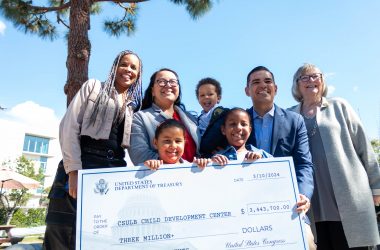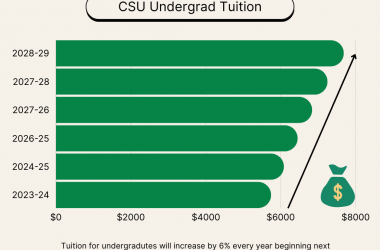The Cal State University Board of Trustees approved pay raises for three of four incoming campus presidents during Tuesday’s meeting at the CSU Chancellor’s Office in Long Beach.
The Board also discussed possible tuition hikes, enrollment cuts and reductions in faculty and staff payroll as a contingency plan in the event that California voters reject Gov. Jerry Brown’s tax initiative this November.
Of the four incoming presidents, three will receive supplement from privately-funded campus foundations in addition to their salaries. The total amount in pay for each of the three presidents will be higher than that of their predecessors.
In January the Board voted to cap presidential salaries at no more than 10 percent of their predecessors’. The CSU created the policy after facing considerable backlash over presidential compensation practices; however, the 23-campus system’s universities may still supplement presidential salaries with individual foundation sources.
Incoming Cal State Northridge president Diane Harrison will receive $324,500 in compensation as compared to the $295,000 of her predecessor; new Cal State San Bernardino president Tomas Morales will receive $319,000 as compared to the $290,000 of his predecessor; and new San Francisco State president Leslie Wong will receive $325,000 as compared to the $298,749 of her predecessor.
However, Thomas Cropper, the incoming president at California Maritime Academy, will receive $250,000, lower than the $258,680 compensation of his predecessor.
The vote on the salaries was not unanimous, with four trustees voting “no.” One of these votes came from trustee Margaret Fortune.
“I’m not comfortable with the signal it sends,” Fortune said. Her view was shared by recently appointed trustees Hugo Morales and Lupe Garcia, as well as student trustee Jillian Ruddell, who also voted against the compensation packages.
California Faculty Association members protesting outside the Chancellor Office expressed similar views.
“The students who take classes and the faculty who teach classes should be the core mission of the university, not educational administrators who make a gazillion dollars and live in fancy houses,” Cal State Long Beach Classics professor and protestor Doug Domingo-Foraste said.
While the trustees argued that the pay was proportional to presidential duties, including fundraising for the universities, Domingo-Foraste said the Board’s justification for the pay raises was questionable.
“There’s no real correlation between how much money you raise and how much you get paid,” Domingo-Foraste said. “I mean, we can get people for less than that who do just as good, if not better of a job.”
According to the trustees and Chancellor Charles B. Reed, however, that isn’t necessarily true.
“These are tough jobs, and we ask these presidents to do the impossible,” Reed said. Reed was highly criticized last year when he included a $400,000 compensation package with the hire of new San Diego State President Elliot Hirshman, who has raised over $71 million for his school thus far. “They work 24/7 and have outstanding teams.”
Trustee Peter Mehas said the CSU presidents generated more than $363 million in the 2010-11 year, which went back to benefit faculty, staff and students.
Even with the funds raised by presidents, though, the CSU could still face a $250-million hole in its budget should Gov. Brown’s tax initiative fail this November, partially cutting state funding to the system.
The Board discussed strategies to counter the effects of the potential loss in state support, including a proposal to increase tuition by $150 per semester per student in spring 2013, which would amount to a five percent increase. Under this plan, CSU employee pay and benefits would take a 2 percent cut and tuition for international and out-of-state students would jump by 9 percent.
Another strategy by the Board proposes cutting enrollment by 6,000, laying off 750 faculty and staff jobs and reducing pay and benefits by 5.25 percent. However, tuition would stay the same.
The decision on the proposal will be made when the Board next meets in September and will go into effect only if Brown’s tax initiative fails to pass.



